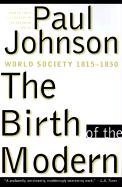
A History of Modern Britain
Book Description
From the ashes of war to the dawn of a vibrant democracy, 'A History of Modern Britain' unfolds like a sweeping epic, capturing the tumultuous journey of a nation seeking its identity. Andrew Marr weaves a gripping narrative filled with political upheavals, social revolutions, and cultural transformations that shaped modern Britain. Every page teems with striking characters and defining moments, posing questions of freedom, unity, and power as the country navigates its path through triumph and turmoil. What forces will define the future of a nation still wrestling with its past?
Quick Book Summary
"A History of Modern Britain" by Andrew Marr offers a sweeping, engrossing account of Britain's journey from the end of the Second World War to the early 21st century. Marr chronicles the country's shift from a battered postwar landscape into a dynamic, multicultural society, highlighting transformative moments in politics, economics, and culture. Explaining how Britain navigated economic upheaval, changing social norms, the decolonization process, and evolving party politics, Marr infuses his narrative with vivid character sketches and lively prose. He explores how key events and personalities—from the Suez Crisis to Thatcherism—reshaped the nation's identity and global role. The book invites insight into themes of power, freedom, and national unity, offering a compelling portrait of a country both shaped by and wrestling with its past.
Summary of Key Ideas
Table of Contents
Post-War Transformation and Recovery
The aftermath of World War II left Britain with immense challenges: economic hardship, a crumbling empire, and a pressing need to modernize. The nation embarked on a project of reconstruction, founding the modern welfare state under Clement Attlee's Labour government and facing austerity. Nationalization of key industries and the development of the National Health Service marked a bold transformation of society, while the scars of war continued to shape both policy and daily life. The cracks in the British Empire became more apparent, setting the stage for the next era of change.
Decolonization and Loss of Empire
Through the 1950s and 1960s, Britain grappled with the decline of its imperial dominance. Decolonization swept across Asia, Africa, and the Caribbean, as Britain managed the independence of numerous colonies. These geopolitical transformations forced a redefinition of what it meant to be British and how Britain related to the world. Immigration from former colonies began to reshape the nation's demographics, spurring both cultural enrichment and tensions. The Suez Crisis of 1956 symbolized the definitive end of imperial grandeur and the dawning reality of new, complex international relations.
Social and Cultural Change
Britain in the latter half of the 20th century was a crucible of social and cultural revolution. The swinging sixties brought a burst of creativity: new music, art, fashion, and literature helped foster a fresh, modern British identity. The rise of youth culture, feminist movements, and the legalization of homosexuality reflected seismic shifts in social attitudes. Yet, economic woes in the 1970s—including strikes, inflation, and unemployment—sowed discontent. These tumultuous decades tested the social fabric and prompted soul-searching about the nation’s direction.
Political Upheavals and Leadership
Political leadership and upheaval, vividly captured by Marr, shaped Britain’s trajectory. The era of Margaret Thatcher brought radical change, with deregulation, privatization, and a crackdown on trade unions fundamentally reshaping the economy and society. The divides of Thatcherism sparked fierce debate about the meaning of freedom and the role of the state. Later, Tony Blair’s “New Labour” embraced modernization and globalization while navigating issues like Northern Ireland’s peace process. Political realignments continued as the country faced challenges of reform, integration with Europe, and questions about its own governing structures.
Britain's Evolving Identity and Global Role
In recent decades, Britain has continued to grapple with its evolving identity and its place on the world stage. The rise of multiculturalism, debates over national unity—especially in Scotland and Northern Ireland—and Britain’s complex relationship with Europe all point to a nation still defining itself. Marr’s narrative closes with a nation both proud of its legacy and aware of its contradictions: modern Britain emerges as a society both restless and resilient, still seeking to reconcile its history with the demands and opportunities of the future.
Download This Summary
Get a free PDF of this summary instantly — no email required.





